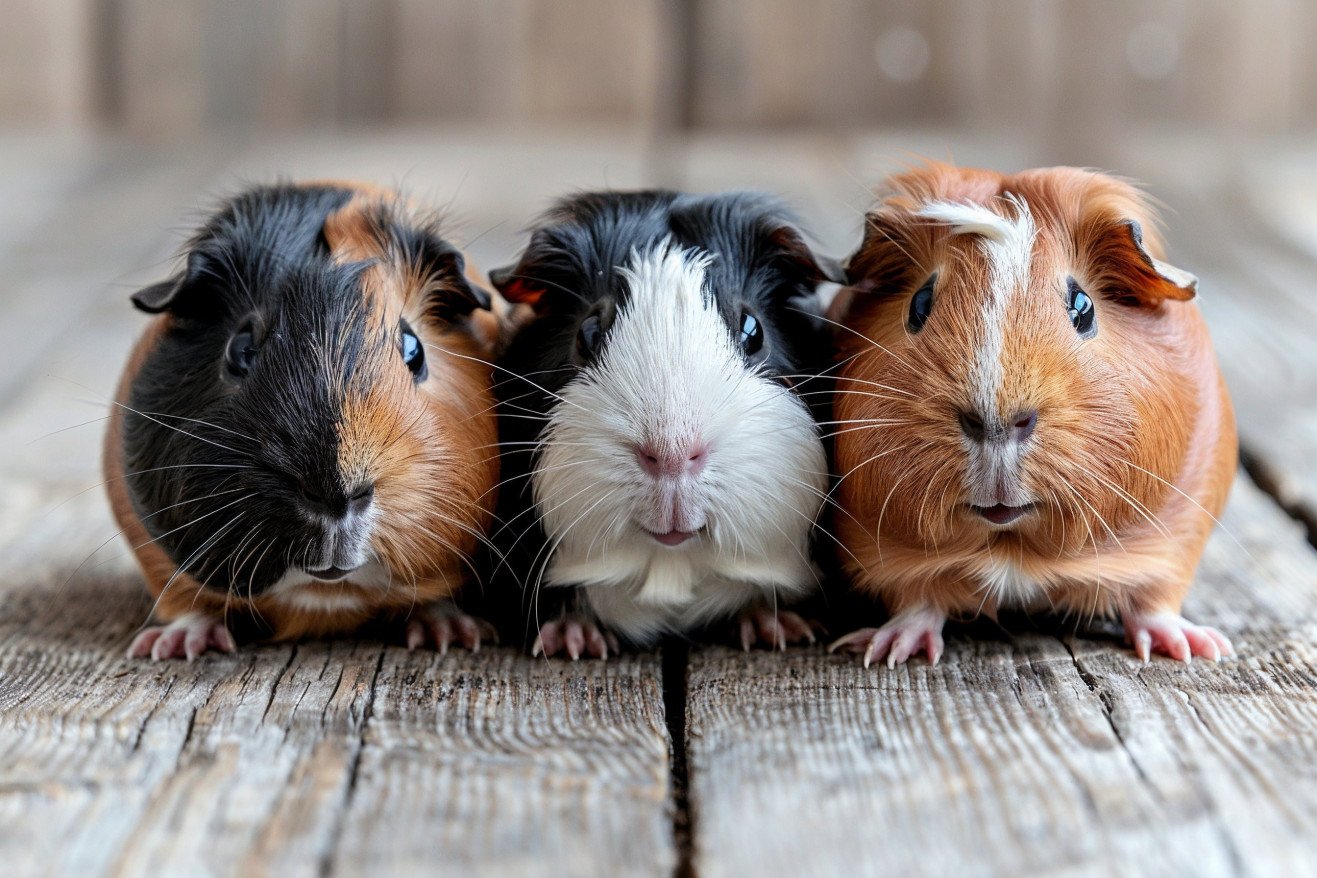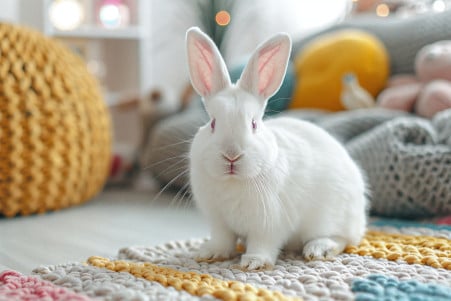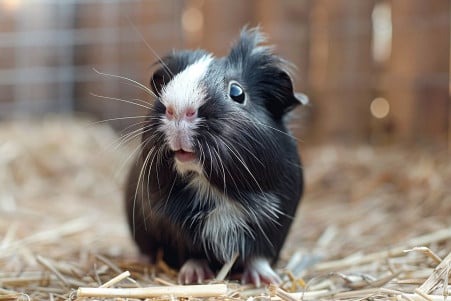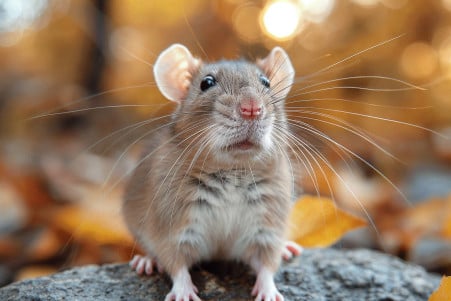Why Do Guinea Pigs Fart? The Science Behind Those Smelly Cavy Toots
25 May 2024 • Updated 25 May 2024

If you've ever heard a strange noise and smelled an even stranger smell coming from your guinea pig's cage, you're not alone. Guinea pigs are prolific little farters, and they do it to get rid of the gas that builds up in their digestive systems from all the hay and veggies they eat. So while guinea pig farts are funny, they're also totally normal and even necessary for the health of these adorable little animals.
This article will dive into the scientific literature on the digestive systems of guinea pigs and other small herbivores to explain why guinea pigs fart so much. Drawing on the expertise of vets, animal behaviorists, and biological research on guinea pig nutrition and gut microbiomes, you'll get a comprehensive understanding of why guinea pigs fart, what's normal and abnormal when it comes to guinea pig farts, and more. By the time you're done, you'll be a guinea pig fart expert!
Do guinea pigs fart a lot?
When Guinea Pig Gas Is a Problem: Signs of Bloat and Other Conditions
While guinea pigs are prone to gas, especially if they're eating a lot of fresh vegetables, excessive gas can be a sign of a more serious condition called bloat or gastric dilatation-volvulus (GDV), where gas builds up in the stomach. According to the April Lodge Guinea Pig Rescue, common signs of bloat include a swollen belly, reduced activity, hunching, not eating/drinking, and signs of discomfort.
Bloat is an emergency and requires immediate veterinary attention because it can quickly become life-threatening if it's not treated. As DRD Knaagdierwinkel notes, bloat can be very painful and can lead to the intestines twisting, which can cut off blood flow. Other conditions that cause excessive gas, like gastrointestinal stasis or dysbiosis (an imbalance of gut bacteria), can also have a major impact on a guinea pig's quality of life.
That's why it's important to keep a close eye on your guinea pig's gas and how they're acting. If you notice a sudden increase in gas, bloating, or changes in their digestive sounds and movements, it could be a sign of a medical emergency that needs immediate veterinary care. The sooner these conditions are caught, the better the chance they can be treated before they become life-threatening. With good care and a healthy diet, most cases of excessive gas can be prevented.
Diet Dos and Don'ts: How to Help Your Guinea Pig Avoid Gas Through Nutrition
A diet that is high in fiber and includes plenty of hay is important for maintaining healthy gut motility and preventing gas in guinea pigs. The PDSA explains that guinea pigs need a high-fiber diet to prevent their guts from becoming blocked. Still, there are some foods that can lead to gas, so it's important to be mindful of them.
The Tri-County Humane Society warns against feeding guinea pigs beans, cruciferous vegetables like broccoli and cabbage, and calcium-rich greens because they can cause gas and bloating. Instead, they suggest a diet that's centered around timothy hay, with smaller amounts of alfalfa hay and pellets.
When adding new foods to a guinea pig's diet, BeChewy recommends introducing them one at a time and watching for any signs of digestive upset. Feeding guinea pigs small, frequent meals and making sure they always have access to fresh water can also help prevent gas. If a guinea pig's diet is leading to gas, it may be helpful to gradually switch to a more appropriate high-fiber diet.
Knowing which foods to focus on and which to avoid can help guinea pig parents prevent gas and support their pet's digestive health. Still, if gas is an ongoing issue or if it gets worse, it's important to talk to a vet for help.
Home Remedies and First Aid: How to Help Guinea Pigs With Mild Gas and Bloat
If your guinea pig is experiencing mild gas and bloat, there are some safe over-the-counter remedies that can help. Wheekcare notes that simethicone (gas relief) and gripe water can be used to help break down gas and make it easier for your pet to pass. However, it's important to make sure you're using the correct dosage for guinea pigs.
In addition to these remedies, abdominal massage or vibration can also be used to help move gas through the digestive tract. The Guinea Pig Forum recommends using an electric toothbrush or vibrating seat to help stimulate the gut.
That said, it's important to note that these home remedies should only be used for mild cases of gas and bloating. Wheekcare explains that severe or prolonged bloating should be treated by a vet immediately, as it can be life-threatening. Pet parents should also make sure they have an emergency kit on hand that includes gas relief medication and other important items in case their guinea pig experiences any digestive issues.
With the right supplies and know-how to treat mild gas and bloating, pet parents can make sure their guinea pigs are comfortable while also knowing when to seek help for a more serious issue.
How to Prevent Flatulence and Keep Your Guinea Pig's Gut Healthy
The best way to prevent flatulence and other gut-related issues in guinea pigs is to maintain a healthy gut microbiome. The PDSA explains that guinea pigs need a diet high in fiber, with a focus on timothy hay, to ensure their gut stays healthy and to prevent them from getting bloated. This is because a sudden change in diet can cause dysbiosis, which is an imbalance in the gut microbiome.
In addition to maintaining a healthy diet, it's important to make sure that guinea pigs are getting enough exercise and playtime to ensure healthy gut motility and prevent gas, as noted in a study from the PMC. In addition, adding probiotics and prebiotics to a guinea pig's diet can help ensure that their gut microbiome stays diverse and healthy, which can help prevent digestive issues.
In addition to maintaining a healthy gut microbiome, it's important to make sure that guinea pigs aren't exposed to stress or other environmental factors that could cause gas and bloating. For example, The Goodna Veterinary Clinic recommends housing guinea pigs in single-sex groups to reduce stress and the risk of bloat. Regular vet visits can also help ensure that your guinea pig is healthy and catch any potential problems early.
By maintaining a healthy, high-fiber diet, ensuring that guinea pigs are getting enough exercise, supporting a healthy gut microbiome, and minimizing stress, guinea pig owners can help prevent excessive flatulence and ensure that their pets have a healthy and happy digestive system.
How to Keep the Cage Clean and Fresh
Maintaining a clean and fresh living environment is important for your guinea pig’s health and happiness. According to Penthouse Piggies, the most important ways to keep odors at bay are to keep the cage clean and manage the bedding. Because guinea pigs urinate and defecate frequently, it’s best to do a deep clean of the cage at least once a week, with daily spot cleans.
When it comes to bedding, Kavee says that it’s best to use absorbent bedding like fleece liners or recycled paper bedding, which can absorb both moisture and odors. In addition, it’s important to make sure that the cage is well-ventilated and that the air is able to circulate well in order to prevent the buildup of stale odors.
If you find that the odors are particularly strong, it may be a sign of an underlying issue, such as a dietary issue or the natural aging process. Kavee says that you can use pet-safe deodorizers in moderation to help keep the cage smelling fresh. However, with regular cleaning and good air circulation, you can keep your guinea pig’s cage smelling fresh and clean.
Conclusion: Accepting the Flatulence and Keeping Your Cavy Happy
Moderate flatulence is a normal and healthy part of a guinea pig's digestive process. However, it's important to monitor for excessive or abnormal gas, as it could indicate an underlying issue requiring prompt veterinary attention. Providing a balanced, high-fiber diet and consistent care routine is crucial for preventing gas-related problems and maintaining a healthy guinea pig gut.
While the occasional toot may be amusing, the focus should be on creating a comfortable, stress-free environment for these delightful furry friends. If any concerns arise about a guinea pig's flatulence or overall well-being, it's best to seek professional advice from a qualified veterinarian.


